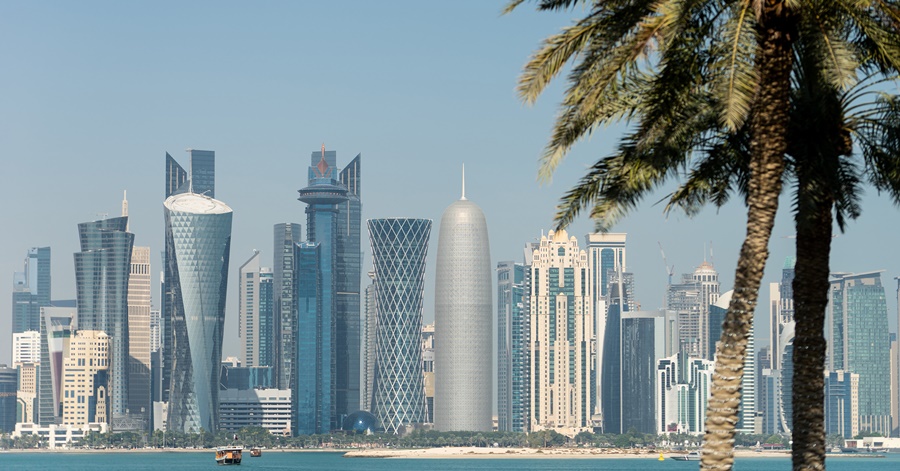As all eyes are peeled for the upcoming 2022 FIFA World Cup, present alcohol rules in Qatar have been hotly contested in the worldwide media. Residents can only buy and consume alcohol with a permit under current restrictions, whereas tourists can drink at licensed restaurants and bars. Recreational drugs, on the other hand, are strictly prohibited. This approach is mainly consistent with the Islamic values that serve as the foundation of Qatar’s legal system.
In this guide, we look at Qatar’s drugs and alcohol policy, and what expats moving to the desert country need to know.
Here’s What You Need to Know About Drug and Alcohol Laws in Qatar
To date, MENA countries’ drug policies have centered on criminalizing drug possession and use (including alcohol, which is illegal in some countries in the region). In Bahrain, for example, persons who use opioids can be jailed for simply possessing needles, resulting in increased dangerous behavior among those who inject drugs. Arresting dealers and intercepting drug shipments has also been a major priority of MENA drug policies.
Drugs in Qatar
Qatar has harsh penalties for illegal drug possession, usage, and trafficking. Offenders may face long-term imprisonment and hefty penalties, followed by deportation. Fines of up to 200,000 QAR may be imposed; however, drug trafficking may result in the death penalty. When it comes to drug prohibitions in Qatar, authorities make no exceptions, and foreign embassies are often helpless to intervene on behalf of their residents.
Travelers entering the nation should anticipate their bags to be searched, though physical searches are uncommon rather than the rule. However, as is customary at most international airports, all luggage is searched at the Doha Airport Arrivals Hall.
Prescription Drugs in Qatar

In Qatar, a wide range of drugs are available without a prescription from pharmacies. Many of these may necessitate a prescription in most Western countries. In contrast, several drugs that are available without a prescription elsewhere in the world require one in Qatar. As a result, consulting with a doctor is advised.
NOTE: Antibiotics are no longer available over the counter due to new laws. Pain relievers, cough medicine, and eye drops are all frequently accessible in supermarkets and larger retailers.
IMPORTANT: Several mental health medicines, including tranquilizers, antidepressants, and several sleeping pills, are prohibited in Qatar. You may be able to receive these in extreme instances after contacting a local doctor.
So if you need to take regular drugs, keep them in their original packaging, together with any accompanying information and the doctor’s prescription. To be certain, request a note from your doctor verifying that you require these medications. Authorities often allow travelers to bring in 30 days’ worth of drugs, with any additional medication having to be obtained locally.
As a tip, remember that after visiting a licensed local medical facility, you must renew your prescriptions locally. It is also beneficial to be aware of the real contents and formula, rather than merely the brand name, as these differ from nation to country and manufacturer to manufacturer. Because many pharmacists will not take international prescriptions, you may need to renew your prescription from a local doctor.
Furthermore, passengers transiting Qatar carrying prescription medications in their hand luggage should seek assistance from their country’s embassy in Doha.
What You Need to Know About Alcohol Laws, Consumption, and Regulation in Qatar

Alcohol, like drugs, is forbidden to import into Qatar (pork products and firearms are other items on the list). It is illegal to consume alcohol or be intoxicated in public. Drunk driving, public intoxication, and other alcohol-related offenses are also taken seriously, with penalties including imprisonment, fines, and even deportation.
Despite the fact that it is a societal taboo, alcohol is available at licensed hotel restaurants, bars, and certain clubs. However, expats in Qatar should bring their Qatar ID or passport to these locations.
In line with this, with a permit, expats can also obtain alcohol. Only the Qatar Distribution Company is permitted to import and sell alcohol, and the retailer controls the country’s only liquor outlets. It also manages alcohol licenses. You will need a letter from your employer that is signed and stamped by an authorized individual in the firm to obtain one. This should include your position, basic wage, living situation, religious affiliation, and marital status. You will also need to provide copies of your valid passport and residence permit, as well as a payment. Furthermore, the minimum salary of 4,000 QAR (USD 1,078) applies.
IMPORTANT: In Qatar, Muslims are not permitted to purchase or consume alcohol. Furthermore, foreign women who are married to Muslims but practice a different faith and are sponsored by their husbands are not eligible for a permit.

What About Alcohol Laws During the FIFA World Cup 2022?
Tourists and visitors considering a trip to Qatar for the 2022 FIFA World Cup will be relieved to learn that alcohol regulations would be lifted during the tournament. During the tournament, beer, wine, and spirits will be available, but only in designated drinking places, not in public or on the streets.
Do note, however, that alcohol continues to be more expensive than in most other countries. Qatar slapped a 100 percent ‘sin tax’ on alcohol in January 2019, but then reduced prices by 30 percent. Despite the price drop, a case of beer in Qatar costs about $64 (or about $2.66 per beverage), according to Bloomberg. A typical hotel bar charges roughly $13.50 per pint.
For many fans, alcohol – particularly beer – remains an essential element of the World Cup experience. In fact, because supporters drank so much during the 2018 tournament, some Russian taverns ran out of beer! The four-week-long worldwide athletic extravaganza in what remains a devout Islamic country is projected to draw 1.5 million participants. Qatari authorities face a perplexing challenge in combining the expectations of that audience with their own historic values.
Being an Islamic country, Qatar holds on to certain values and restrictions on practices such as drinking and drug use, especially. But with a few exemptions, foreigners and expats, particularly those who will visit the Gulf nation for the upcoming FIFA World Cup in 2022 can avail of these products, considering proper protocols and requirements.
READ NEXT: Things to Know When Applying for Alcohol License in Qatar

